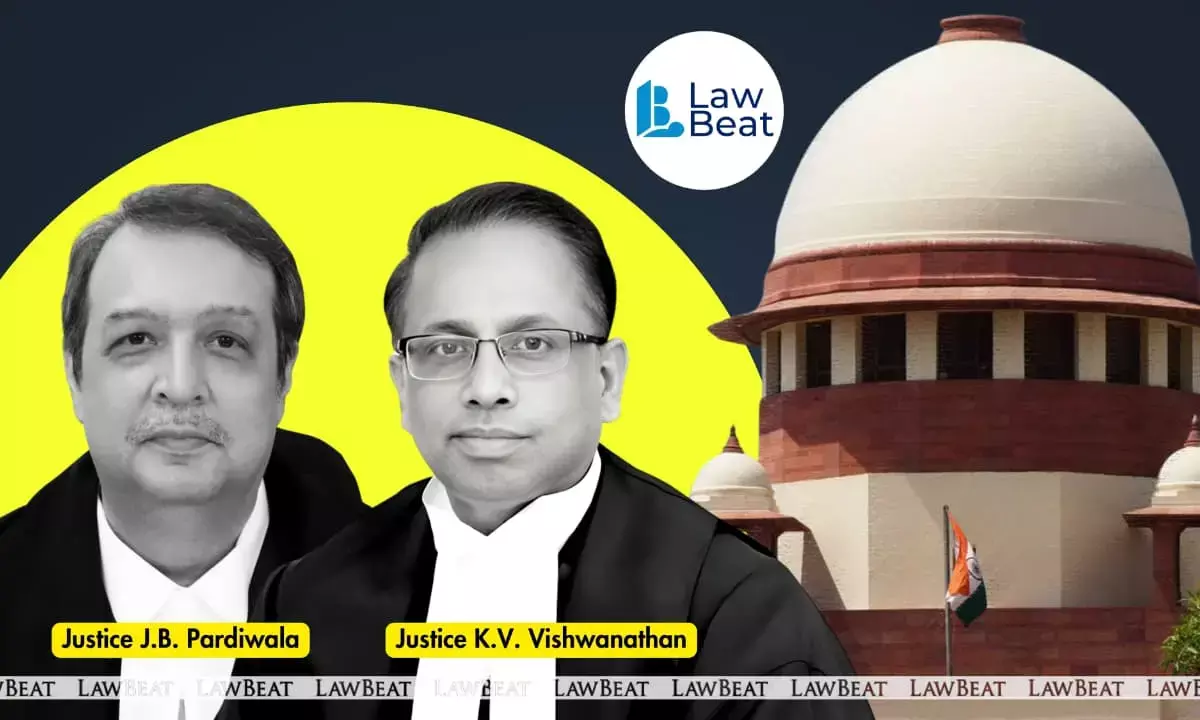Life Sentences Can’t Be Suspended Without Exceptional Circumstances in Favour of Convicts: SC

Supreme Court cancels bail for three men convicted of a 2020 murder, ordering them to surrender after criticizing the Jharkhand High Court’s cryptic order for suspending the life sentence
The Supreme Court recently set aside the Jharkhand High Court’s orders suspending life sentences awarded to three men who were convicted in a 2020 murder in Giridih district, criticising the High Court for passing “cryptic” orders that ignored settled legal principles for suspending life sentences. Court also expressed strong displeasure over the State of Jharkhand’s absence despite being served notice in a matter involving a serious offence.
A bench of Justices J.B. Pardiwala and K.V. Viswanathan restored custody of convicts Rajesh Rai, Vicky Rai and Sukhdeo Rai, all found guilty of being part of an unlawful assembly that attacked and killed a man returning to his village. The Sessions Court had in 2023 convicted them under Sections 147, 148, 149, 325, 342 and 302 of the Indian Penal Code and sentenced each to life imprisonment.
According to the prosecution, the deceased was travelling with another villager when they were intercepted and assaulted by several named individuals and 20–25 unidentified persons. Weapons ranging from lathis and rods to a pistol were allegedly used in the attack. An injured eyewitness, later examined as PW-5, consistently named the accused during trial, leading to their conviction.
All three convicts challenged the sentence before the Jharkhand High Court. While their appeals are still pending, they sought suspension of their life terms under Section 389 of the Code of Criminal Procedure and requested bail.
In three separate orders passed on May 7, 2025, the High Court granted them bail, observing in each case that the allegations were “general and omnibus” and that the evidence showed a large number of persons participating in the assault. The High Court further relied on the fact that one of the co-convicts had already been granted bail in a connected appeal.
However, the de-facto complainant challenged these bail orders before the Supreme Court, arguing that the High Court had mechanically suspended a life sentence without examining the evidence on record or the nature of the offence.
Agreeing with the complainant, the Supreme Court said the High Court had failed to follow the well-established parameters governing suspension of sentence in cases involving life imprisonment. Court emphasised that, unlike fixed-term sentences, life sentences can be suspended only when the convict demonstrates a “very gross error” in the trial court’s judgment that makes acquittal a strong possibility.
Even in cases where the sentence is for a fixed term, there is a caveat that if there are exceptional circumstances, then the court may decline to suspend the sentence, the bench added.
"What could be those exceptional circumstances is not something exhaustive. It is for the court concerned to look into those exceptional circumstances as may be pointed out by the State,'' the bench said.
The bench noted that the High Court had not discussed the prosecution’s case, the evidence or the trial court’s reasoning. It also pointed out that the case involved an unlawful assembly, where liability arises from membership itself under Section 149 IPC. Even if a specific act is not attributed to an accused, their presence in the unlawful assembly is sufficient for conviction, which was an aspect the High Court failed to consider.
The Supreme Court said it was “very surprising and unfortunate” that the State of Jharkhand neither appeared nor challenged the High Court orders granting bail, especially when one convict, Rajesh Rai, was alleged to have committed the murder while already on bail in another murder case.
Setting aside the bail orders, court directed all three convicts to surrender within 24 hours, failing which the trial court must issue non-bailable warrants. It also instructed the Jharkhand High Court to rehear their suspension-of-sentence pleas only after they furnish proof of surrender.
Moreover, the bench directed that a copy of the judgment be sent to the Chief Justice of the Jharkhand High Court, remarking that the matter required immediate attention.
Case Title: Chhotelal Yadav Vs State of Jharkhand & Anr
Judgment Date: November 10, 2025
Bench: Justices J.B. Pardiwala and K.V. Viswanathan
